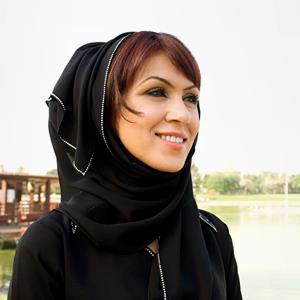Some clothing companies see a big opportunity in catering to Muslims and other women who want to dress modestly, but fashionably.
 A
group of fashion designers in Southern California are attempting to tap
into a market that, for many outside of it, might seem very
inaccessible: Muslim women.
A
group of fashion designers in Southern California are attempting to tap
into a market that, for many outside of it, might seem very
inaccessible: Muslim women. The Los Angeles Times reports some regional clothing designers see a huge opportunity in helping women in the Muslim community dress fashionably.
Those designers are looking for customers such as LaTanya Maassanri, a postal carrier in Long Beach.
"We are Muslim and we can still express ourselves, be fashionable, as long as we do it in a halal way,” she told the Times, referring to upholding Islamic law. "But unless you have lots of money or lots of time to shop, it's been hard for years to find clothes in America that aren't dowdy."
Companies like Mohajababes -- a play on the word Muhajiba ( someone who wears the traditional Muslim hijab or head scarf) and babes -- are looking to dress Muslim women who want to stay true to their faith, but who are ready to break away from the traditional black.
"Trying to conform to Muslim dress codes, you get stuck in a rut of black, black, black all the time," said Afra Said-Ahmed, who launched Mohajababes with her sister. "It's definitely very difficult, especially in the U.S. You want to fit in, but still be appropriately dressed."
The sisters started their company with $2,000 and a modest approach, selling hijab accessories as well as embroidered and bejeweled kaftans in a variety of colors and cloths.
"We are passionate about bringing alternative evening wear to those who would like to dress modestly and express themselves through their clothing at the same time," the company’s website says about its kaftans.
Some of these designers are getting push-back from conservative Muslims, who are upset by any brightly-colored or adorned clothing on Muslim women. The Mohajababes website also has a blog where the company has responded to such criticism.
Part of the issue, according to University of Kentucky professor Anna Secor, is the wide difference between what is considered acceptable in different Islamic countries.
"What exactly is the boundary of modesty is contested and a lot of people don't agree," she said in an interview with the Times. "This tension of fashion and Islamic modesty is something women deal with every day of their lives."
Like a lot of other designers, the people and companies specializing in Muslim clothing would like their fashion lines to eventually go mainstream and be available in major retail outlets -- for women of any faith who want to dress modestly but with a sense of flair.
British designer Barjis Chohan, in an interview with the Guardian, estimated the potential of the international Muslim fashion market at around $96 million.
"[Being] properly covered is the main idea," Toronto college student Sadiyya Ali recently told the Globe and Mail. "But I like to look cute while I'm covered, too."
Tidak ada komentar:
Posting Komentar